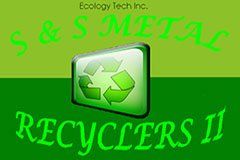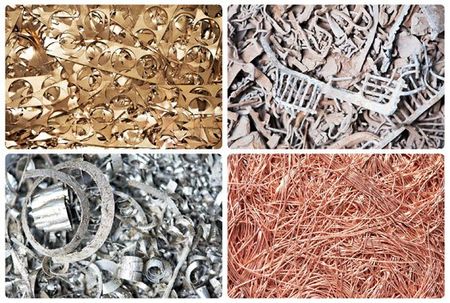Recycling Information
Recycling Isn't Just For Paper & Plastic
Electronic & Metal Recycling
Recycling
is not a new concept. When people first began to worry about pollution and the possibilities of overflowing landfills, recycling awareness skyrocketed. Now, most cities or counties provide trash and recycling pick up services in urban areas and residential neighborhoods for electronic recycling and other material including metal, copper, aluminium and even gold found inside electronics. Recyclable products typically include relevant information, such as a number that indicates if the product is recyclable and what type of recycling it represents. Paper is one of the most commonly recycled objects, but plastic bottles, aluminum cans, and glass products are also commonly found in recycling bins.
A question many people pose regarding recycling is whether or not it is worth it, not only in a monetary sense, but environmentally as well. It is well known that for some materials using recycled goods in production is more time and energy consuming than simply producing the goods from raw materials. Recycling advocates say recycled products offer a constant supply of resources, cutting down on the time, energy, and cost of recovering natural materials. For each recycled product, one must weigh all the benefits and consequences of using that item in production versus sending it to a landfill and using raw materials for production.
While one of the concerns that spurred widespread interest in recycling was landfills running out of space and creating unusable land, these have largely turned out to be groundless fears. Many landfills, once filled and covered, are later converted into public parks or recreation areas. On the other hand, there is always a chance of landfills allowing hazardous chemicals or other dangerous material to seep into the ground around them, which can have severe consequences for wildlife and plant life in the area.
Not all landfills are the same. In America, landfills are tightly regulated and controlled in an effort to protect all life nearby, whether human, animal, or plant. Unfortunately, a number of other countries do not have these strict regulations, and a large portion of trash from developed countries is sent to developing countries. The countries need money, and generate cash by selling off large portions of their land to be used simply as a dumping ground for other country’s refuse. This is not good for the environment or the citizens living near these dumping grounds, no matter what the trash may be especially electronic as many recycling center would love to recycle these precious electronics.
Much of what ends up in the trash is broken electronics. These often contain heavy metals and hazardous material that is leached into the soil and groundwater over time, further damaging the land and the people living nearby. People rarely think to recycle their electronics, and the only metal that regularly gets recycled is aluminum cans. This is not only unfortunate, but wasteful. Aluminum is the one type of material universally acknowledged to be economically and in all other ways beneficial to recycle, and other metals are similarly valuable.
There are many companies that will pay for used and broken electronics, usually to mine the heavy metals and other valuable materials and sell them for a profit. While some recycling companies simply remove metal parts before sending the rest to foreign landfills, others are more ethical and take care of recycling all electronic parts after more valuable electronic and other materials have been recovered. Gold is one precious metal often used in electronics because of its conducting power, and is highly valued by electronic recycling centers as well as metal recyclers.
The most common metals sent to recycling facilities are steel, iron, lead, aluminum, copper, and zinc. Iron and different types of steel, including scrap steel and stainless steel, are often recycled as ferrous metals. Any metal that does not include iron is considered non-ferrous; this includes aluminum, copper, and zinc. Precious metals such as gold and silver are also non-ferrous. These metals are generally melted down and resold for an impressive profit.
Browse Our Website
Contact Information
Business Hours
- Mon - Fri
- -
- Saturday
- -
- Sunday
- Closed
Location
Content, including images, displayed on this website is protected by copyright laws. Downloading, republication, retransmission or reproduction of content on this website is strictly prohibited. Terms of Use
| Privacy Policy

